From the Chicago Reader (January 25, 1991). — J.R.
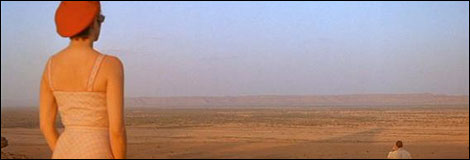
THE SHELTERING SKY ** (Worth seeing)
Directed by Bernardo Bertolucci
Written by Mark Peploe and Bertolucci
With Debra Winger, John Malkovich, Campbell Scott, Jill Bennett, Timothy Spall, Eric Vu-An, and Paul Bowles.
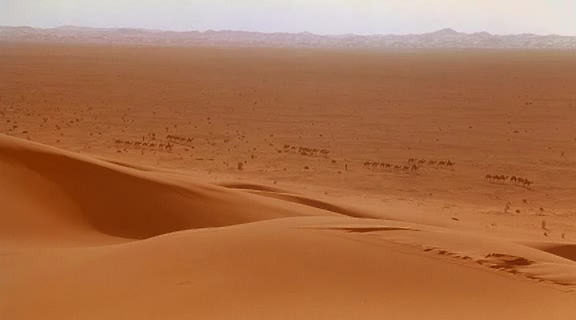
Ever since the 60s the adjective “personal” has been frequently used in relation to commercial movies, and it has almost always been used as an expression of praise. As a reaction to the relatively “impersonal” directorial styles of a Fred Zinnemann, Stanley Kramer, or David Lean, the celebration of the “personal” styles of directors such as John Ford, Howard Hawks, and Alfred Hitchcock ushered in a critical bias that favored the director’s subjective involvement in his or her material — an involvement that is often autobiographical in its implications (such as Ford’s feelings for the Irish and the military, or Hitchcock’s sexual repression and his fear of imprisonment) — over the self-effacement that has often been regarded as both the norm and the ideal of conventional filmmaking.
But in order to argue that the films of supposedly “invisible” stylists like Hawks were highly personal, many auteurists wound up overstating their case, arguing in effect that any director with a discernible “personality” was automatically better than any director without one. Read more
From The Independent: Film and Video Monthly, November 1985 — J.R.
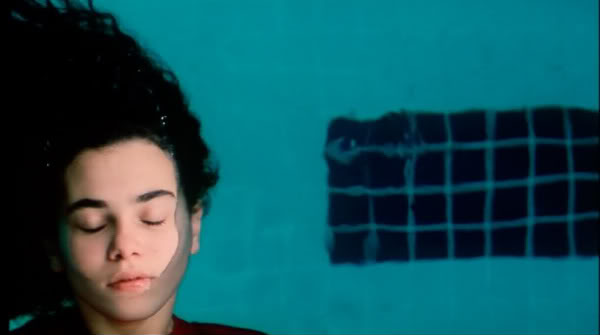

Having attended festivals of many shapes and sizes around the world, I can think of none that is more conducive to the serious viewing of original, offbeat work than the Rotterdam Film Festival. While Rotterdam lacks the global media coverage and accompanying hoopla of a Cannes, Toronto, Venice, Filmex, or Berlin, the festival offers filmmakers a congenial and sympathetic setting. Significantly, American independents as diverse as Jim Jarmusch and Mark Rappaport — as well as European figures like Manoel de Oliveira and Raul Ruiz — made their mark there long before they were treated to New York Film Festival premieres.
A cash prize is awarded each year to a film selected by the Dutch critics. Most recently, it went to Ruiz’s Manoel à l’ïle des merveilles (see two stills above), a French-Portuguese television co-production shot in 16mm, comprising three 50-minute episodes. However, the overall spirit of the festival is anything but competitive, and as a rule the critics prize will go to a film that the critics feel is deserving of special attention rather than an audience favorite. Read more
From the Chicago Reader (November 24, 1995). — J.R.
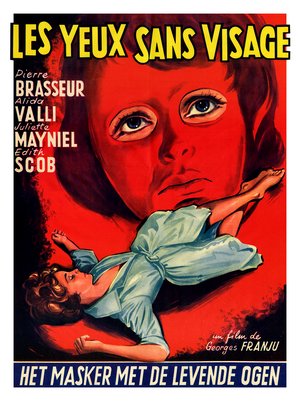
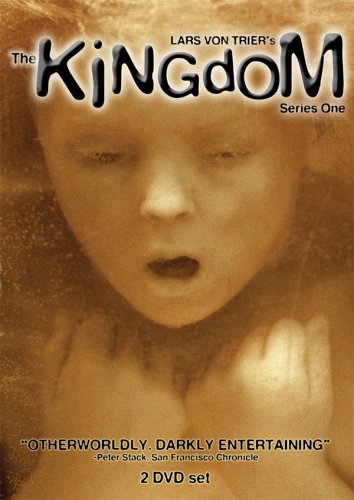
Eyes Without a Face
**** (Masterpiece)
Directed by Georges Franju
Written by Jean Redon, Pierre Boileau, Thomas Narcejac, Claude Sautet, Pierre Gascar, and Franju
With Edith Scob, Pierre Brasseur, Alida Valli, Juliette Mayniel, Béatrice Altariba, François Guerin, Alexandre Rignault, and Claude Brasseur.
The Kingdom
** (Worth seeing)
Directed by Lars von Trier and Morten Arnfred
Written by von Trier, Niels Vorsel, and Tomas Gislason
With Ernst Hugo Jaregard, Kirsten Rolffes, Ghita Norby, Soren Pilmark, Holger Juul Hansen, Annevig Schelde Ebbe, Jens Okking, Otto Brandenburg, Baard Owe, and Birgitte Raabjerg.

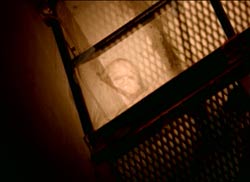
They’re both arty European fantasy meditations on the medical profession — that’s about all that Georges Franju’s Eyes Without a Face (1959) and Lars von Trier’s The Kingdom (1993) have in common, apart from the fact that they’re both opening here the day after Thanksgiving. The differences between them are much more instructive. Franju’s Les yeux sans visage is a poetic, compact (88 minutes) black-and-white French horror picture about skin grafting that premiered inauspiciously in the United States 32 years ago in a dubbed and reportedly mangled version known as The Horror Chamber of Dr. Faustus; happily, Facets Multimedia is showing it in its original form and subtitled. Read more








